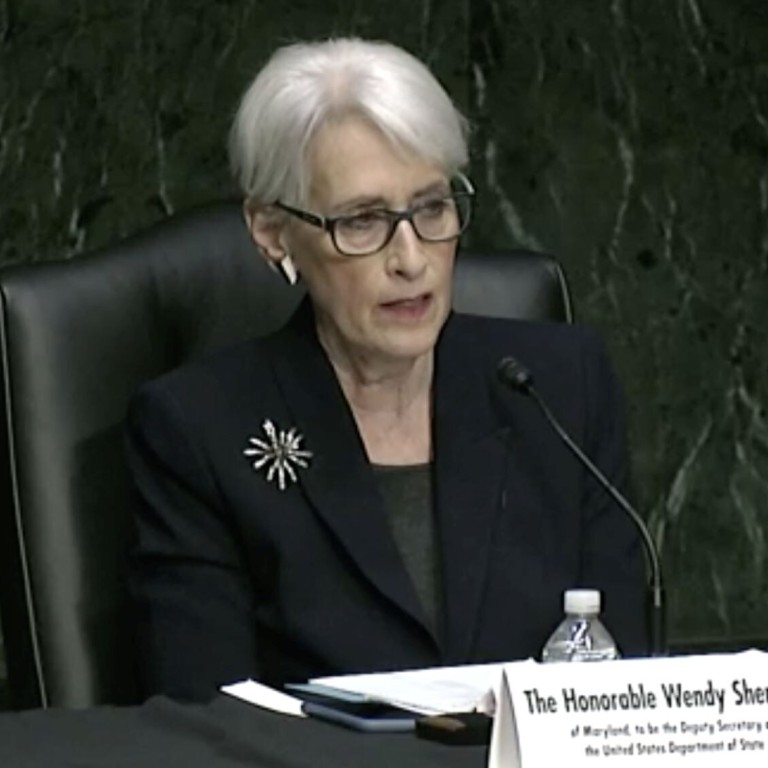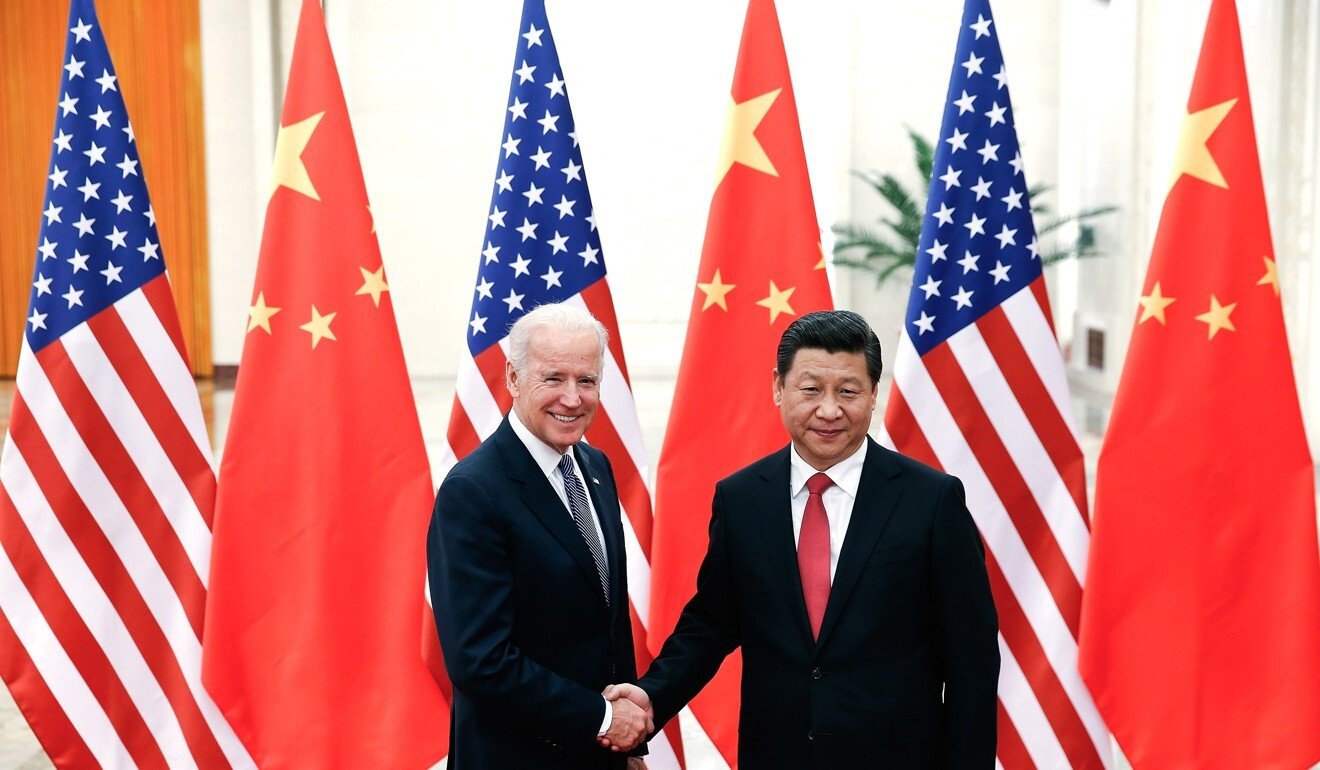
Exclusive | Xi-Biden summit moves closer with senior US diplomat Wendy Sherman’s China visit
- The State Department No 2 will meet Chinese foreign vice-minister Xie Feng next week, paving the way for top-level encounter
- Visit provides opportunity for engagement ahead of the next phase of the Biden administration’s China policy
Washington is sending a senior diplomat to China next week in a visit seen as an essential first step towards a potential leadership summit between the two powers.

Sherman’s visit will also provide a rare opportunity for engagement ahead of the next phase of Biden’s China policy, as his point man for Asia Kurt Campbell puts the finishing touches on a review that will provide recommendations for the US administration’s future policy direction.
Biden will take part in a virtual meeting of the Apec Forum on Friday. It is unknown whether there are plans for a discussion with Xi at that time, but some have raised the possibility that a meeting could take place during the October G20 meeting in Rome.
“After [Campbell’s] review, it’s time to touch base and for both sides to get a sense of where the relationship is going,” said the source, who requested anonymity.
Sherman and Xie’s meeting will be the first senior face-to-face encounter since March, when the two countries’ senior diplomats had a fiery exchange in Alaska. Qin Gang, who is expected to succeed Cui Tiankai as China’s US envoy, is expected to leave for Washington by the end of July, after a handover from Cui who is about to finish quarantine, sources also said.
China’s man in Washington Cui Tiankai heads for home after eight years
The US also marked the fifth anniversary of an international tribunal’s ruling rejecting most of China’s claims in the South China Sea, with a statement on Sunday by Blinken calling on Beijing to stop provocative actions in the disputed waterway. He also reaffirmed that the mutual defence treaty with the Philippines included a commitment to respond if it was attacked by China.
Campbell said last week the US would “step up our game substantially” in Southeast Asia, but he made clear Washington did not support independence for Taiwan – one of Beijing’s “red lines” – while continuing to foster a strong unofficial relationship with the self-ruled island.
Companies doing business in Xinjiang may run ‘high risk of breaking US law’
Despite these tensions, the two countries have opened up limited channels for cooperation on climate, with US climate envoy John Kerry meeting his Chinese counterpart Xie Zhenhua in Shanghai in April.
“But such does not indicate a return to the regular diplomatic dialogues of the past, while the US has upped the ante in the already heated confrontation to new dimensions such as cyber technology,” he said.
“As rivalry continues to heighten, it is increasingly significant for both sides to put emphasis on crisis prevention and conflict management. But it is not expected, even for future dialogue at more senior levels, that the confrontation in any major field in bilateral relations is going to be reversed.”
US and allies must set ‘democratic’ AI rules, Biden officials say
Sherman, 71, is best known for her role in the Iran nuclear deal negotiations. She was appointed to the State Department’s No 2 position in April and travelled to Southeast Asia and Europe in May, with the China issue topping the agenda.
In an interview with The New York Times in June, Sherman was asked about Biden’s developing China strategy. These “are not relationships about trust. They are relationships about respect. You can gain respect for each other’s interests, and you ensure that your interests are met,” she said.


